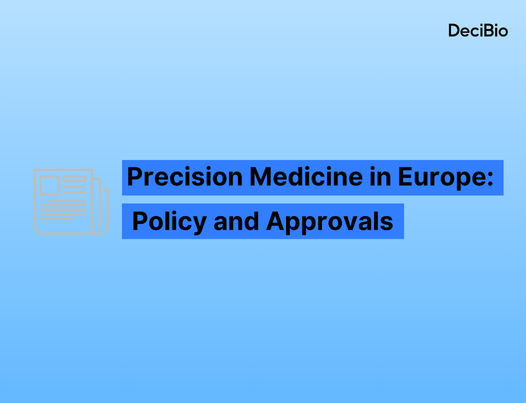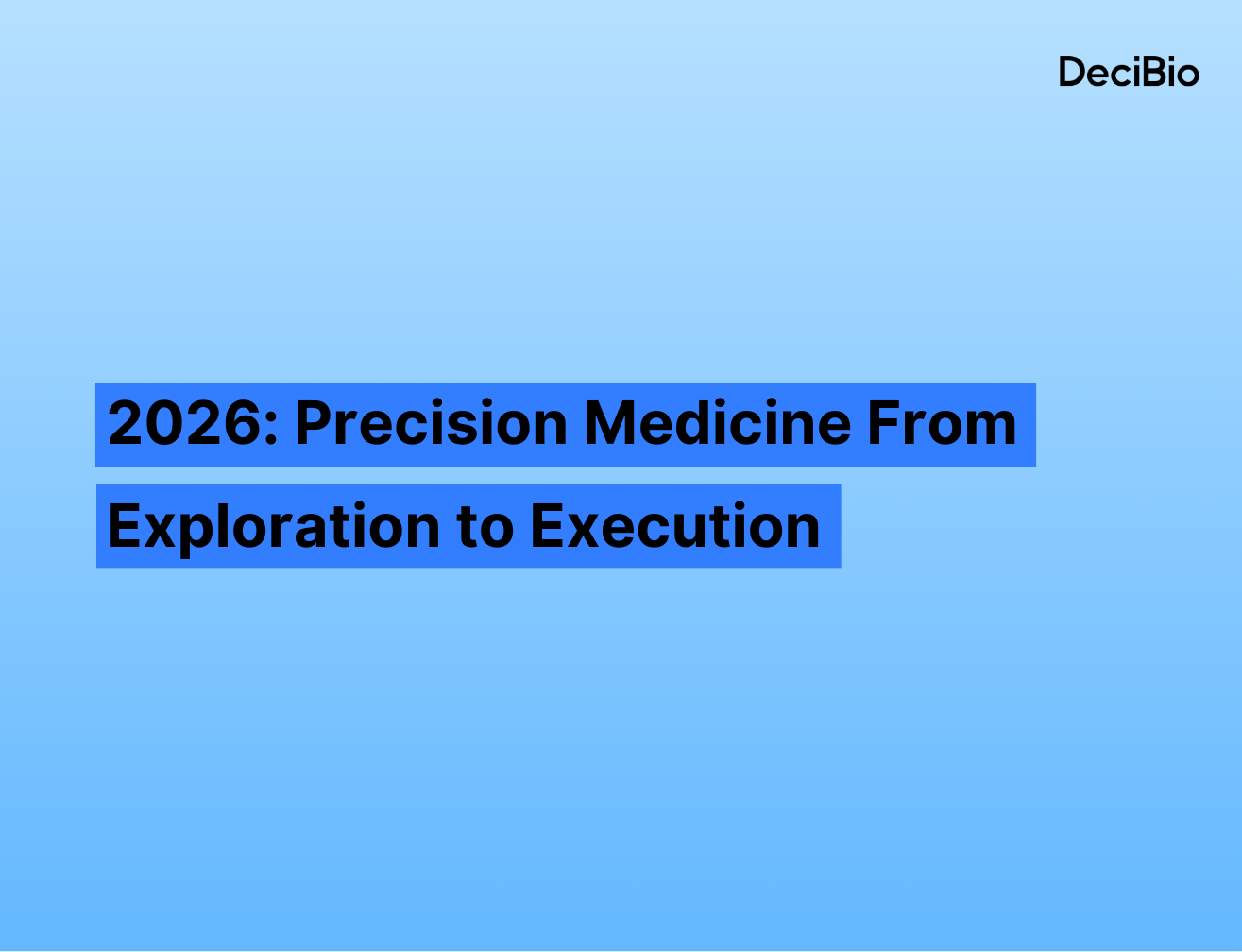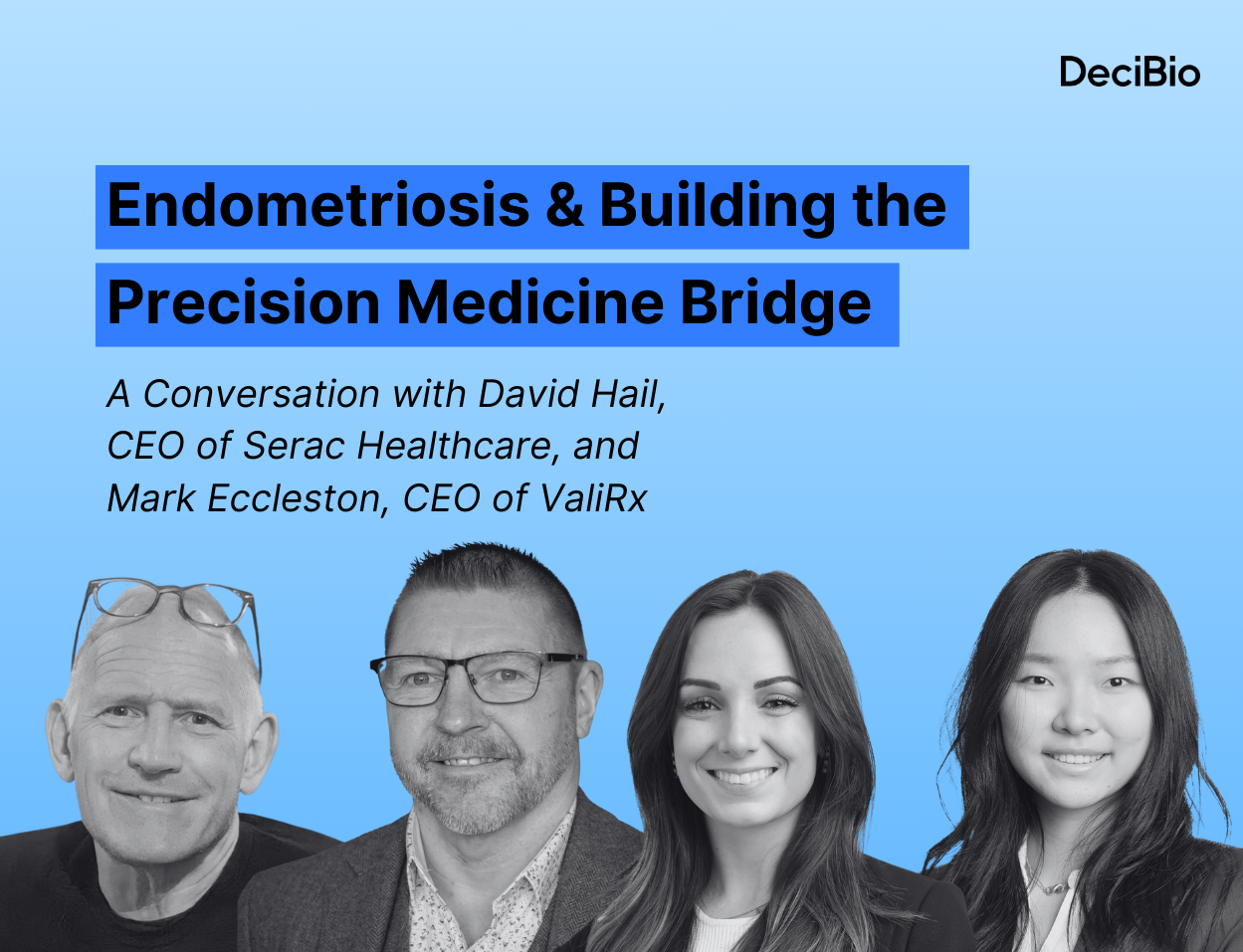Many precision medicine headlines center on novel therapeutic, diagnostic, and AI-driven innovations that could enter the clinic in 5+ years, but oncologists are uniquely positioned to shed light on what could transform cancer care near-term, offering perspectives crucial to clinical success. At the front lines of cancer care, oncologists are privy to the most acute pain points in the clinic, and consequently their insights on what is innovative and useful are key opinions precision medicine developers should closely follow.
To capture a snapshot of this clinician feedback, DeciBio conducted a pulse survey with 8 U.S. oncologists to ascertain what precision oncology advancements excite them the most, benchmark the adoption of several emerging technologies, and identify the companies they see as most innovative. We leveraged Dexter, the precision medicine expert network, to conduct the survey; we sent invitations to 10 oncologists and received responses from 8 (80% response rate) all within 5 days. When available, we provide quantitative benchmarks, but given the low survey N, these are not necessarily meant to be reflective of overall market conditions, but rather provide a glimpse of what is top of mind for some clinicians today. Key findings include:
1. Diagnostics / clinical testing advancements were mentioned as the most exciting precision medicine developments expected in the next 1-2 years, surpassing novel therapeutics
2. Liquid biopsy in particular (especially ctDNA monitoring / MRD) is a key technology oncologists are excited to adopt; >50% of cancer patients may benefit from these technologies in the next 1-2 years
3. Cell and gene therapies are the next generation of treatments surveyed oncologist are most excited by; Nearer term, new TKIs andI/O treatments garner significant interest as well
4. >60% genomic and proteomic testing conducted by these oncologists is sent to reference laboratories outside their hospitals, a trend that almost all oncologists expect to continue near-term
5. >15 different companies were named as the ‘most exciting / innovative’ in precision medicine; ~60% of these were pharma, the remainder being reference laboratories focused on genomics

Precision medicine advancements oncologists are most excited about


When asked about exciting precision medicine developments, diagnostics were top of mind for most oncologists in addition to next generation therapeutics
· >50% of the precision medicine developments surveyed oncologists were excited about related to diagnostics / clinical testing. Liquid biopsy / minimal residual disease (MRD), in particular, are key technologies oncologists are eager to adopt (if they haven’t already).
· Among treatments, personalized cell and gene therapies were cited as the most exciting to surveyed oncologists. Next generation TKIs were also top of mind in light of near ubiquitous access to genomic testing and the expansion of targeted therapies into earlier stages of disease / adjuvant settings.
Current and expected future use of ctDNA / MRD and digital tools


ctDNA / minimal residual disease (MRD) testing is already well penetrated into oncology care; digital / clinical automation tools are still at the beginning of their adoption journey
· All but 1 oncologist cited some use of ctDNA monitoring / MRD today; on average, just under half of patients treated by surveyed oncologists had ctDNA / MRD applied to their treatment, but oncologists expect this could grow to ~3/4 (on average) in the next 1-2 years.
· Natera’s Signatera assay is the only MRD test surveyed oncologists use today for routine clinical testing (e.g., not trials), but assays from Foundation Medicine, Guardant Health, and Twist were all cited as options oncologists are excited to consider.
· Only ~half of surveyed oncologists cited they use digital tools / clinical automation solutions today, but those who did use them still only applied them to a minority of patients. In 1-2 years, most surveyed stakeholders think >50% their patients will benefit from these tools, with digital pathology and automated clinical decision support solutions seeing greatest interest.
Proteomic and Genomic Biomarker Test Settings

Across oncologists, ~2/3 (on average) of biomarker testing is sent to external reference laboratories, and continued outsourcing is expected
· For both proteomic and genomic testing, 3/8 oncologists expect more tests to be sent to external labs, 3/8 expect no change, and only 2/8 expect to bring more testing in-house over the next ~12 months.
· Despite broad excitement for emerging therapeutics and test methods, no oncologist expects to begin testing for new biomarkers in the next ~12 months.
Companies Innovating in Precision Medicine Space & Driving Oncologist Excitement

There is little consensus on which companies are the most innovative / exciting in precision medicine; the field benefits from numerous players with varied pipelines
· ~60% of companies named were therapeutic / biopharma companies spanning numerous indications / classes of therapies. In general, the innovations oncologists were most excited about from these companies were the next generation of therapies already in the clinic (e.g.next gen TKIs, better biologics / checkpoint inhibitors).
· ~40% of companies named were reference labs / diagnostics vendors. Notably, all of these companies have genomic laboratory developed tests (LDTs) as their core offerings. Breadth of offerings, user-friendliness, and ctDNA offerings were key factors oncologists found exciting / innovative.








